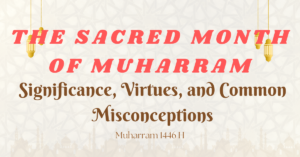Salah, the Islamic practice of prayer, holds immense significance as one of the Five Pillars of Islam. It is a spiritual discipline that goes beyond mere ritual, serving as a profound connection between a Muslim and Allah.
Overview of Salah
1. Importance of Salah:
Salah is more than just a religious obligation; it is a cornerstone of a Muslim’s daily life. It serves as a spiritual anchor, offering moments of reflection, discipline, and connection with Allah throughout the day. This practice is a means of purifying the heart, reinforcing faith, and maintaining a strong relationship with the Creator.
2. Preparing for Salah:
Preparation for Salah involves specific steps that ensure both physical and spiritual readiness. This includes performing ablution (Wudu) to achieve physical purity, dressing appropriately, and facing the Qiblah (direction of the Kaaba in Mecca). The intention (Niyyah) to pray is essential, as it aligns the worshipper’s heart and mind with the act of worship they are about to perform.
3. Performing Salah:
The process of Salah is meticulously structured, with a sequence of movements, postures, and recitations that are performed at specific times of the day. Each action within Salah has deep spiritual meaning, designed to bring the worshipper closer to Allah. The prayers involve reciting verses from the Quran, praising Allah, and seeking guidance and forgiveness.
4. Spiritual Depth of Salah:
Beyond its physical aspects, Salah is deeply spiritual. It is a moment for Muslims to cultivate mindfulness (Khushu’), focusing their hearts and minds on their Creator. This mindfulness transforms Salah from a routine activity into a deeply meaningful experience, fostering a sense of peace, humility, and spiritual fulfillment.
5. Avoiding Mistakes:
Like any practice, errors can occur during Salah. Common mistakes are addressed with practical advice on how to correct and avoid them. This guidance helps ensure that the prayer is performed in a manner that is pleasing to Allah and true to Islamic teachings.
6. Enhancing the Experience with Duas:
After Salah, many Muslims engage in additional supplications (Duas) and remembrances. These prayers deepen the spiritual connection, offering a time for personal reflection, gratitude, and seeking Allah’s blessings in all aspects of life.
Final Thoughts:
Salah is not just a ritualistic practice but a deeply spiritual experience that nurtures the soul and strengthens the bond between a Muslim and Allah. It is a discipline that, when performed with sincerity and mindfulness, brings immense peace, guidance, and a sense of purpose.




Ma Sha Allah